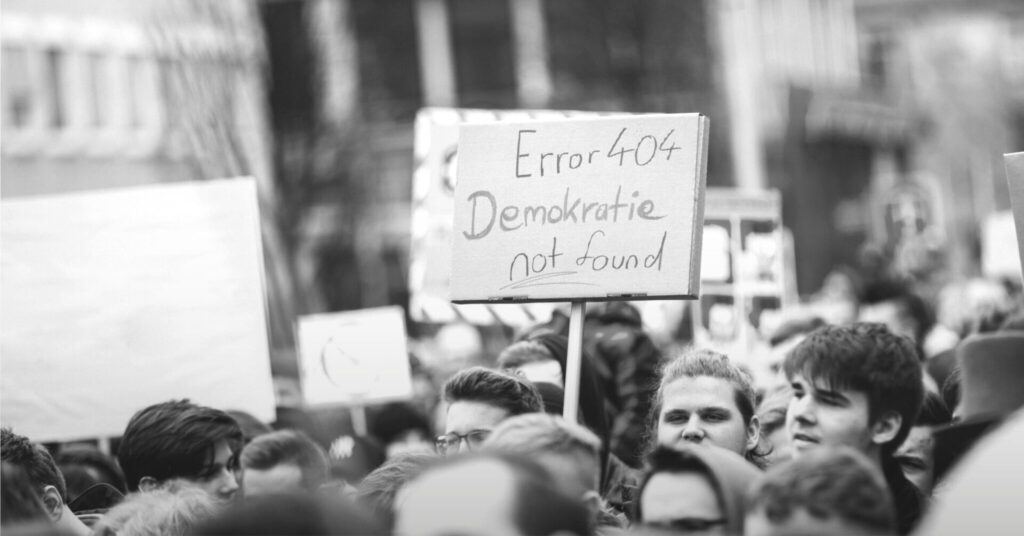
- Duration: 2020 – 2022
- Project lead: Prof. Dr. Christian Katzenbach
Team: Prof. Dr. Christian Katzenbach, Dr. Daria Dergacheva, Adrian Kopps
Partners: HIIG, Scuola Superiore Sant’Anna (Italy), University of Amsterdam (Netherlands)
Funding: EU – Horizon 2020
Social media platforms play an important role in the tension between freedom of expression and copyright. Services such as YouTube, Instagram and Facebook check and delete videos, images and texts from millions of users every day on the grounds that they violate copyrights or the platform’s own rules:
The platforms thus intervene directly in user-generated content. This massive influence on public discourse is (and remains) a trigger for global disputes between platforms, governments, the media industry, content producers and users.
In 2019, the European Parliament passed a controversial copyright directive with the aim of adapting the European Union’s copyright law to the requirements of the digital society and reducing the power imbalance between platforms, creators and users. Since then, there have been heated debates about the exact implementation and consequences of the directive. Article 17 (formerly Article 13) in particular has led to controversy. The article makes platforms responsible for the content they make available, even if it is not published by the platforms themselves but by users. Critics fear that against this backdrop, platforms will use automatic filtering systems that block all content that even potentially infringes copyright – and thus massively restrict public debate and creative content.
The project “Platform Governance and Copyright” examined these interactions from two complementary perspectives: In the first phase, we analysed the governance structures that platforms have developed to achieve a balance between freedom of expression and the control of online content: How do the algorithms that evaluate content work? What rules do platforms use to regulate both these algorithms and the behavior of users? How do platforms adapt to public pressure and legal requirements?
In the second phase of the project, we examined the consequences of these governance structures: How do they change the information environment of platforms? How are they understood and implemented by creators and users? Do Article 17 and other provisions of the EU Directive restrict the diversity of online content?
Researching these questions can show whether the EU Directive is changing the diversity and availability of knowledge and culture. To find answers, we are conducting extensive document analyses, using digital methods and interviewing a wide range of stakeholders.
The project was part of reCreating Europe, a Europe-wide initiative for research into digital copyright, which is funded by the EU’s Horizon 2020 framework program. Key partners included the Scuola Superiore Sant’Anna (Italy) and the University of Amsterdam (Netherlands).
Publications
- Dergacheva, D., & Katzenbach, C. (2023a). Mandate to overblock? Understanding the impact of the European Union’s Article 17 on copyright content moderation on YouTube. Policy & Internet, n/a(n/a), 1–22. https://doi.org/10.1002/poi3.379
- Dergacheva, D., & Katzenbach, C. (2023b). “We Learn Through Mistakes”: Perspectives of Social Media Creators on Copyright Moderation in the European Union. Social Media + Society, 9(4), 20563051231220329. https://doi.org/10.1177/20563051231220329
- Dergacheva, D., Katzenbach, C., Schwemer, S. F., & Quintais, J. P. (2023). Improving Data Access for Researchers in the Digital Services Act (SSRN Scholarly Paper 4465846). https://doi.org/10.2139/ssrn.4465846
- Katzenbach, C. (2021a). “AI will fix this” – The Technical, Discursive, and Political Turn to AI in Governing Communication. Big Data & Society, 8(2). https://doi.org/10.1177/20539517211046182
- Katzenbach, C. (2022). Der „Algorithmic turn“ in der Plattform-Governance. KZfSS Kölner Zeitschrift für Soziologie und Sozialpsychologie, 74, 283–305. https://doi.org/10.1007/s11577-022-00837-4
- Magalhães, J. C., & Katzenbach, C. (2020). Coronavirus and the frailness of platform governance. Internet Policy Review, 1. https://policyreview.info/articles/news/coronavirus-and-frailness-platform-governance/1458
- Quintais, J. P., Katzenbach, C., Schwemer, S. F., Dergacheva, D., Riis, T., Mezei, P., & Harkai, I. (2022a). Copyright Content Moderation in the EU: Conclusions and Recommendations (SSRN Scholarly Paper 4403423). https://papers.ssrn.com/abstract=4403423
- Quintais, J. P., Katzenbach, C., Schwemer, S. F., Dergacheva, D., Riis, T., Mezei, P., & Harkai, I. (2022b). Copyright Content Moderation in the EU: Conclusions and Recommendations (SSRN Scholarly Paper 4403423). https://papers.ssrn.com/abstract=4403423
- Quintais, J. P., Mezei, P., Harkai, I., Vieira Magalhães, J., Katzenbach, C., Schwemer, S. F., & Riis, T. (2022). Copyright Content Moderation in the EU: An Interdisciplinary Mapping Analysis.
- Schwemer, S. F., Katzenbach, C., Dergacheva, D., Riis, T., & Quintais, J. P. (2023a). Impact of Content Moderation Practices and Technologies on Access and Diversity (SSRN Scholarly Paper 4380345). https://doi.org/10.2139/ssrn.4380345
- Schwemer, S. F., Katzenbach, C., Dergacheva, D., Riis, T., & Quintais, J. P. (2023b). Impact of Content Moderation Practices and Technologies on Access and Diversity (SSRN Scholarly Paper 4380345). https://papers.ssrn.com/abstract=4380345

